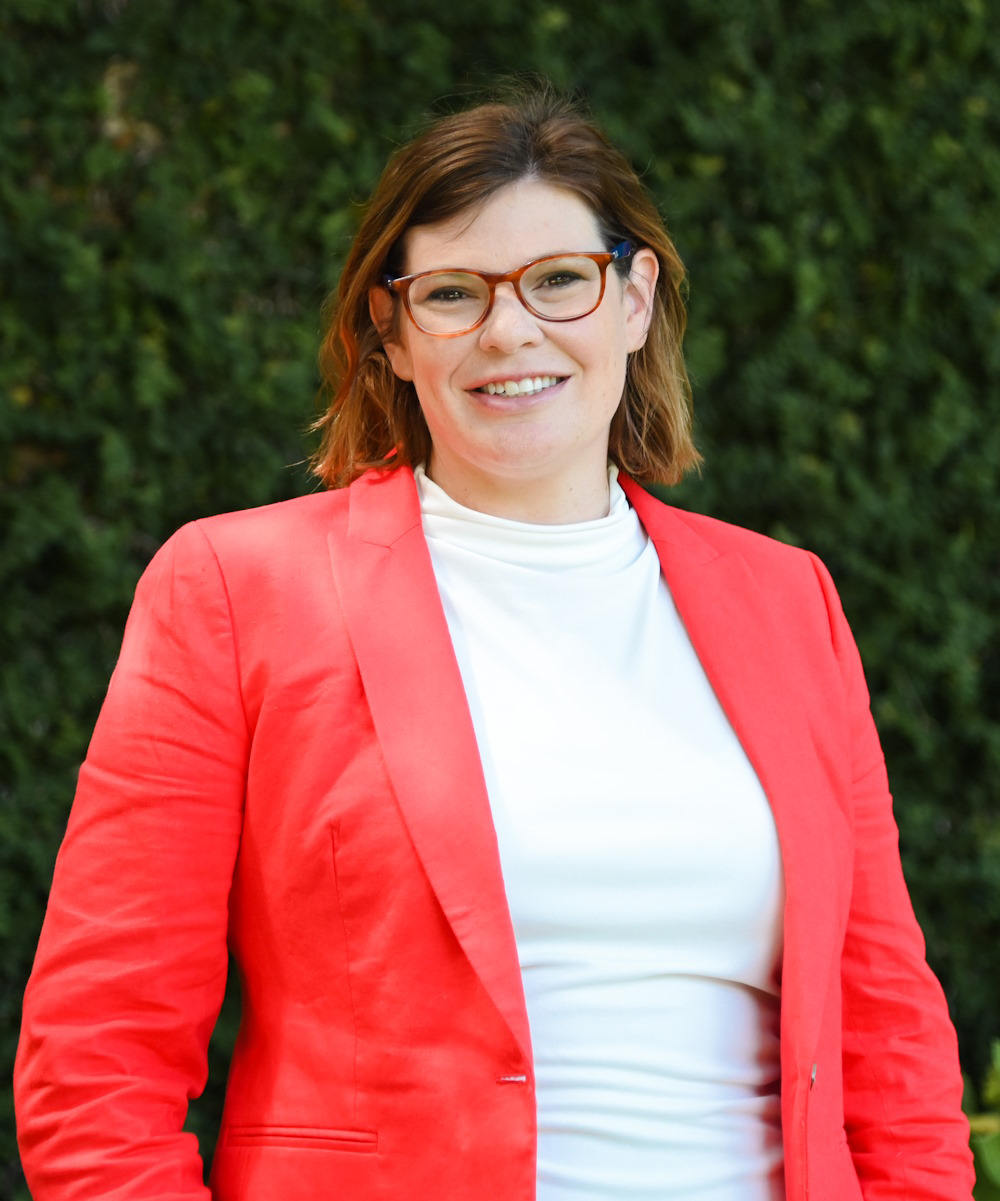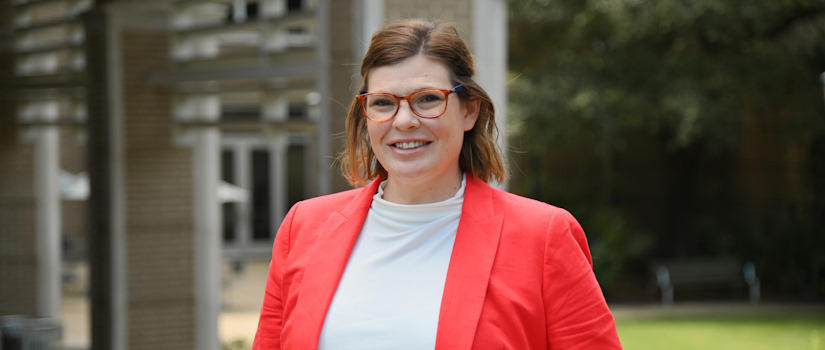September 6, 2024 | Erin Bluvas, bluvase@sc.edu
When Amanda Rebar moved from her small hometown in Utah to attend Indiana University, she felt anonymous in her vast new environment. She found her place freshman year, however, in a social developmental psychology lab where she volunteered.
“It was there I found my passion for using something as definite and logical as statistics to understand something as complex and abstract as human motivation and behavior,” says Rebar, who then completed master’s and doctoral degrees in the field at Pennsylvania State University. “I fell in love with trying to understand and measure the irrational, automatic influences on people's health behaviors.”
After graduating, Rebar spent 10 years at Central Queensland University in Australia. There, the psychology associate professor served as the Lead of the Social Insights Research Group and directed the award-winning Motivation of Health Behaviours Lab.
She also served on the leadership team of the university’s Appleton Institute of Research. Rebar loved working with students (winning the Student Voice Award for Educator of the Year three different times) and colleagues – teaching a variety of courses, working with community and industry partners, and building her research program to advance health equity, improve health outcomes and inform policy change.

This work has evolved to focus on motivation of health behaviors and how to make and break habits. In other words, Rebar investigates why people do what they shouldn’t and don’t do what they should. With her background in advanced biostatistics, she enjoys applying these methods to understand how motivation, feelings and behavior change over time.
Rebar joined the Department of Health Promotion, Education, and Behavior (HPEB) this semester as an associate professor and looks forward to continuing this work here. She’s also excited to live closer to her parents, who live nearby in Rock Hill, South Carolina and are eager to spend more time with Rebar’s two young sons.
“We are excited for Amanda to join HPEB,” says Andrew Kaczynski, HPEB interim associate chair. “Her work on habits and motivations is cutting edge and relevant to understanding and improving a wide array of health behaviors. She will also help bridge a variety of disciplines and centers at USC, including psychology, epidemiology, and the Technology Center to Promote Healthy Lifestyles (TecHealth), to name just a few.”
“I cannot wait to get to know and work with the teams within the Arnold School of Public Health,” Rebar says. “I'm keen to get in touch with any students who want to learn more about my research. I love working with students, regardless of whether they have research experience or not.”
